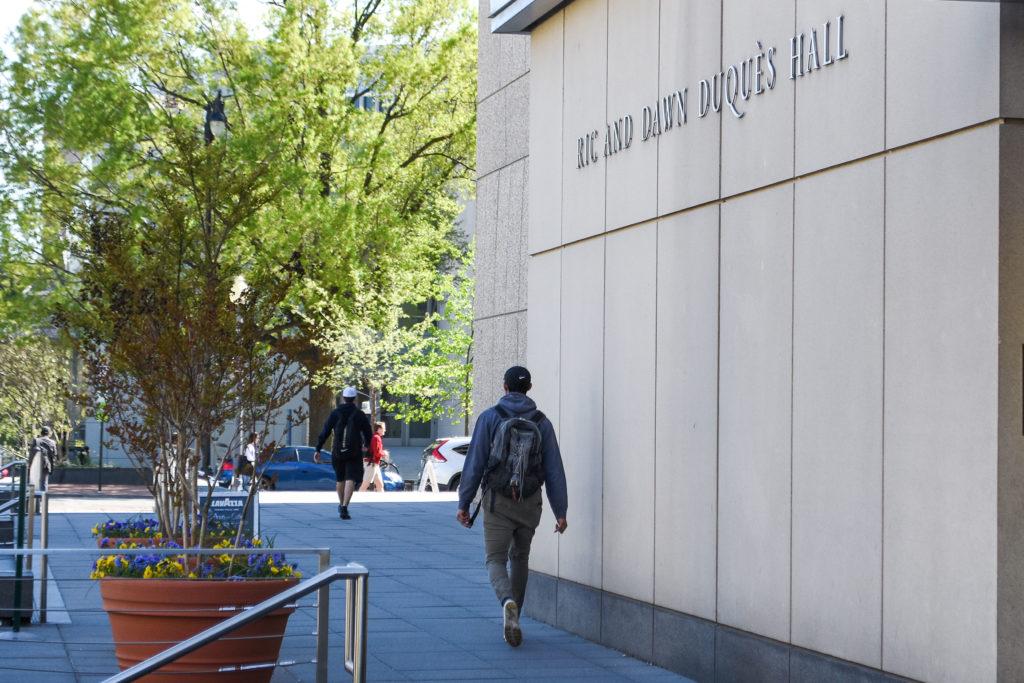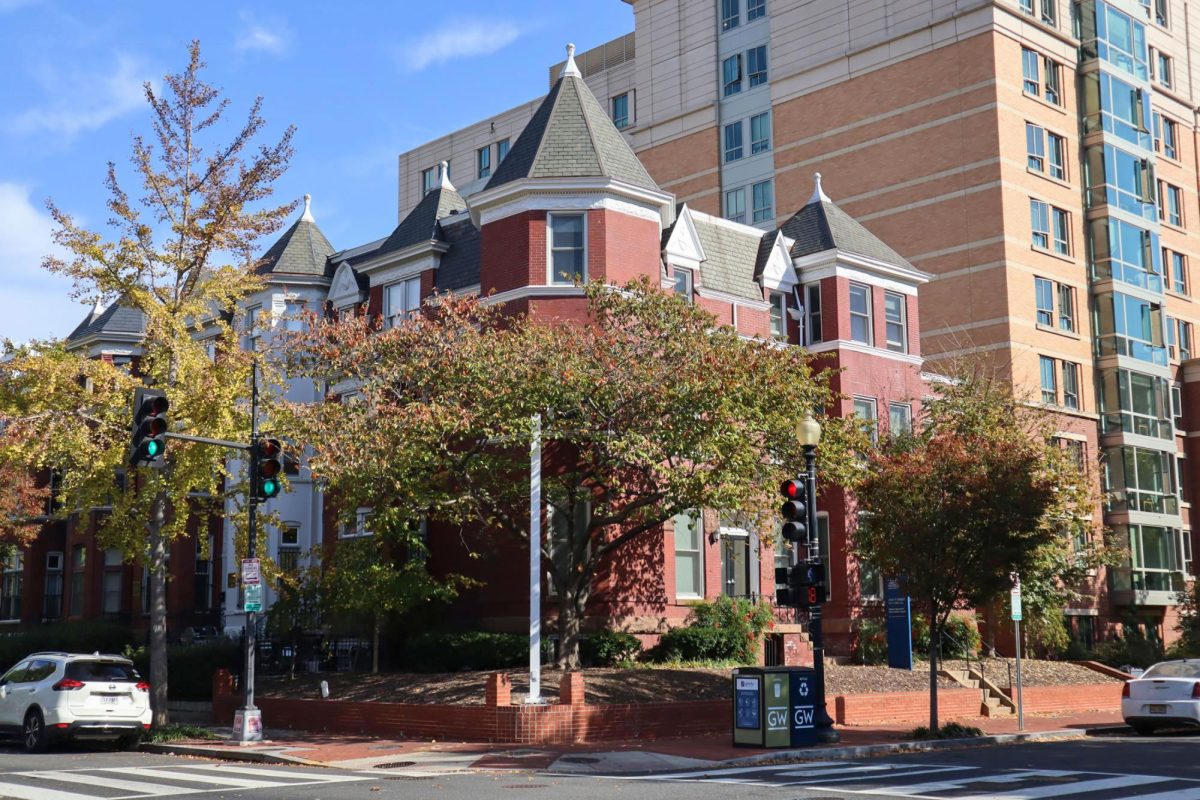School of Business officials are overhauling Master’s of Business Administration programs with new courses and enhanced career services support this fall.
Business school officials announced the changes earlier this month to expand student engagement efforts, program curriculum, career services and experiential learning within their five different MBA programs. Officials said the changes were implemented to keep the program current as the business world continues to change.
Liesl Riddle, the associate dean for graduate programs in the business school, said the program will be updated to decrease the amount of time needed to complete the degree to three semesters and to make it easier for students to tailor the program to their own interests with a wider selection of course offerings.
“The desire for more hands-on experience with employers, more opportunities to grow students’ professional social network and an emphasis on adding more analytic and technical skills into the curriculum was a common theme expressed by all stakeholders,” she said in an email.
The business school offers five MBA formats: global, professional, online, accelerated and online health care. Several MBA programs have recently risen in the most recent U.S. News and World Report rankings, in which the business school’s international program offerings ranked No. 8 among international programs.
Riddle said officials are “utilizing new creative intensive formats” by offering courses on weekends and during holidays like fall, winter and spring break. Officials also reduced the total number of credit hours necessary to graduate so students can more quickly finish the program, she said.
“We created curricular pathways for full-time MBA students to complete their degrees in as few as three semesters if they would like to do so,” she said. “Students in our part-time programs, accelerated MBA, healthcare MBA, online MBA and professional MBA can complete the degree in as few as two years.”
Riddle said officials collected input from the dean’s corporate council, the school’s board of advisers, students, faculty and staff before making the changes.
As part of the move to create more experiential-learning classes, a new course called “Business and Technology in D.C.” will give students the opportunity to work with local employers and help solve any issues they may have with technology, she said.
In addition to new experiential learning courses, Riddle said the program will add new one-credit skill-building courses covering topics like artificial intelligence and health care that will help students tailor their classes to their specific interests.
Mark Strassman, the executive director of the F. David Fowler Career Center, said officials are making complementary changes to the center’s operations that make it better suited to serve the various MBA programs in the business school.
“Whether on campus or online, full-time or part-time, we recognize that all our MBA students are a part of GWSB and deserve access to our excellent career guidance,” he said in an email.
Strassman said officials hired new career consulting staff members and have adjusted the center’s hours to serve the “growing” and “diverse” MBA student population. The center’s hours have been extended in the morning and evening, according to the business school website.
He said the center has also opened up the Consulting Community of Practice program to all graduate students as part of the changes. The program provides students with mentorships, skills training and the opportunity to work pro bono on consulting projects, according to the program’s website.
“The Fowler Career Center feels that with the diversity of the student population that each program brings to the table, our programs will better represent today’s workplace,” he said. “In that light, we continue to explore programs that will collaboratively involve all MBA program cohorts.”
Susan Kulp, a professor of accountancy and the faculty director of MBA programs, said the most recent changes come from the need to adapt the curriculum to a “continually changing business environment.”
Kulp said the new curriculum will allow students to apply their classroom knowledge to real-world situations firsthand.
“Experiential learning provides students the opportunity to apply these academic theories, from different disciplines to real business problems,” Kulp said in an email.
She said students have an opportunity cost to the amount of time they spend receiving a degree. Decreasing the amount of time it takes to graduate and allowing students to “customize their degree” will help them better fulfill their personal and professional goals at a faster pace, she said.
David Halliday, a teaching assistant professor of strategic management and public policy, said the changes to the MBA programs in which he teaches – global, part-time and online MBAs – are “appropriate” because MBA programs are constantly changing.
“It’s not a radical overhaul,” Halliday said. “It’s the right changes that GW should be making here.”
Halliday said one new addition to the curriculum, a course on “business improv,” will allow students to practice business skills like pitching, interviewing, presenting and thinking under pressure that are directly applicable in the workforce.
“There is no doubt that this will improve our standings relative to our peer schools,” he said. “GW has honestly the most adaptable overall MBA program that I’ve ever seen.”








